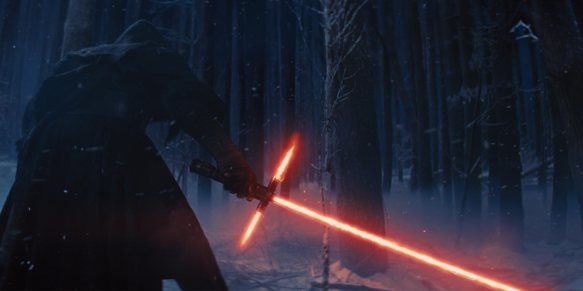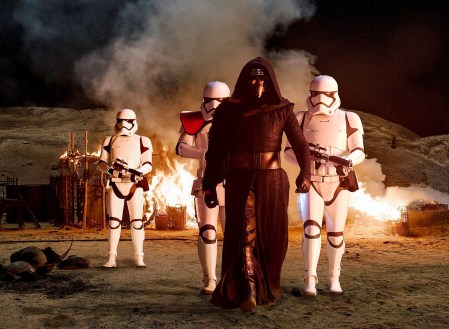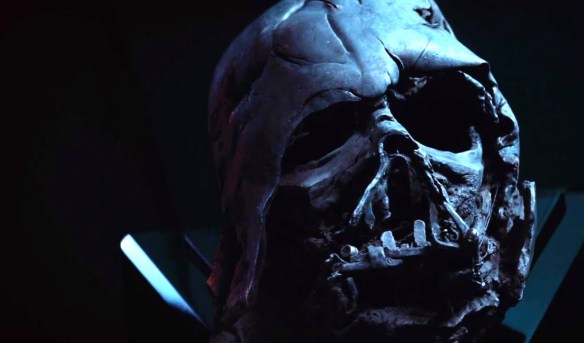 In his commentary on Euclid’s elements (roughly 320 CE), Pappus of Alexandria recounts the strange case of a Pythagorean who was drowned for what amounts to giving a spoiler. It was said that a wayward mathematician of the Pythagorean society shared the Pythagoreans’ most important and secret teaching – that there was such a thing as irrational numbers (like the square root of two) – and paid for the revelation of this confidence with his life.[i] Similarly, in Japan the punctuation used in the Confucian Classics was treated as a form of secret lore, and the Kiyohara and Nakahara noble families guarded closely their readings of the texts for hundreds of years. In so doing, they accrued a prestige nearly equivalent to being the descendants of Confucius. In 1599 Fujiwara Seika exposed this secret for the first time and freely taught his contemporaries the key to the texts. In his case the effect was almost the reverse of that of the unfortunate Pythagorean. Fujiwara wasn’t murdered, but by giving spoilers he effectively cheapened the original secret. After the secret of how to parse the sentences of The Analects was widely known, it became a matter of mere triviality, thereby dooming the formerly prestigious secret tradition to irrelevance and obscurity.[ii]
In his commentary on Euclid’s elements (roughly 320 CE), Pappus of Alexandria recounts the strange case of a Pythagorean who was drowned for what amounts to giving a spoiler. It was said that a wayward mathematician of the Pythagorean society shared the Pythagoreans’ most important and secret teaching – that there was such a thing as irrational numbers (like the square root of two) – and paid for the revelation of this confidence with his life.[i] Similarly, in Japan the punctuation used in the Confucian Classics was treated as a form of secret lore, and the Kiyohara and Nakahara noble families guarded closely their readings of the texts for hundreds of years. In so doing, they accrued a prestige nearly equivalent to being the descendants of Confucius. In 1599 Fujiwara Seika exposed this secret for the first time and freely taught his contemporaries the key to the texts. In his case the effect was almost the reverse of that of the unfortunate Pythagorean. Fujiwara wasn’t murdered, but by giving spoilers he effectively cheapened the original secret. After the secret of how to parse the sentences of The Analects was widely known, it became a matter of mere triviality, thereby dooming the formerly prestigious secret tradition to irrelevance and obscurity.[ii]
Nor are these the only examples of societies rooted in secrecy. One can think of numerous groups – from Scientologists to Freemasons to various criminal societies – that build their social cohesion around a shared secret and which have historically threatened punishment for those who disclose these secrets to the world at large.
Although by no means as serious, contemporary Anglophone culture seems to be somewhat united around a prohibition concerning spoilers to “The Force Awakens” (Star Wars Episode VII) with fans texting what are probably joke death threats to those who break this particular covenant without warning. I saw the movie on Friday, and these are my first impressions. They amount to trying my hand at assessing the film’s marketing campaign, and particular the contradictions of its anti-spoiler component.
Please follow me across the fold for some spoilers… more importantly, I’ll be using the sociologist Georg Simmel as a stepping off point to talk about the secrecy/spoilers in global marketing and to assess the film’s implicit politics. Again: WARNING, THERE ARE SPOILERS. Read only if you have been initiated into this secret society or if you think its holy secret is (blasphemy!) trivial.

In a famous essay, Georg Simmel argued that keeping shared secrets was a near universal method for producing social cohesion. In brief, having a secret gives a person a kind of prestige while sharing a secret produces a bond, etc. But Simmel also noted that the content of the secret was largely irrelevant, stating:
“Out of this secrecy, which throws a shadow over all that is deep and significant, grows the logically fallacious, but typical, error, that everything secret is something essential and significant.”[iii]
Restated, making something even trivial into a secret actually increases its significance and societies can be constituted around the most trivial or absurd of secrets.
This is the key to the contradiction around secrecy in “The Force Awakens.” For all the talk of spoilers, the main spoiler is that if you’ve seen the original trilogy you’ve already seen this movie. “The Force Awakens” is a movie that is in some sense impossible to spoil. As the marketing from the beginning told us, the main appeal of the film is nostalgia around the original trilogy and a reset from the abomination that was the prequels. But if you’ve seen the predecessors of “The Force Awakens” (and are hence susceptible to this nostalgia) then the movie brings almost nothing new.
The perverse thing about the marketing is that the only spoiler is that there are no spoilers.
Let me put this differently. Not only does “The Force Awakens” telegraph almost every significant plot point so far in advance that you can see it a mile coming, but it also assembles its entire narrative from recycled features of the original trilogy. It stars a naïve youth from a desert planet who goes on to become a Jedi. It has another Jedi who started good and then became drawn to the Dark Side and who wears a mask and Force Grabs subordinates, etc. It also has a (super) Death Star and funny droids. It has a reduced version of the Empire that it calls the First Order. It even brings back the Millennium Falcon and most of the lead characters from the original movies—at least for a cameo, if not a role. All of The Force Awakens’ plot points – from a guerilla raid taking down a force field to a character turning out to be the father of another character, and casting a small Yoda-like alien as a source of wisdom – are all things we’ve seen before in the original trilogy.
Yet, back in March, the film’s director, J.J. Abrams said:
“My dream is that, despite so many rumors — many of which are true, many of which are untrue — when people see the movie, they see something that hasn’t been completely ruined for them by having read spoilers they might not have wanted to read.”[iv]
When I originally read this, I assumed that the moratorium on spoilers was because of some fabulous or improbable plot twist (like the surprise cock in The Crying Game). But instead, the only twist in this movie is that we’ve seen it all before. To be sure the casting has been updated for the 21st century (finally), but that is about it.
Simmel lets us see that it was the marketing of the film around secrecy (the “no spoilers campaign”) that gives it extra appeal. This form of marketing has the double function of producing the sense that the plot contains a meaningful secret and also makes those who have seen the film into a kind of society of the initiated. But this alone doesn’t tell us why the film had the particular narrative structure it did, because the actual secret is largely irrelevant.

So why didn’t Abrams just remake the original trilogy with a woman Skywalker and a black Han Solo? Or better yet why not redo the critically panned prequels?
In his review in Salon, Gerry Canavan suggested plausibly that it was an issue fundamental to all fiction with expanded universes. Basically, you can’t have a triumphant ending that solves all the world’s problems and then write a bunch of sequels and tie-in novels or films. Canavan thinks that what Tolkien got right was realizing it would be a downer or at the very least anti-climactic to write more books set after The Return of the King. Having defeated Sauron, the fellowship of the ring is supposed to have at great cost and sacrifice won everlasting peace, not merely a brief reprieve from evil. So in this account, Abrams’ problem is that “Return of the Jedi” ended on a happy note with ewoks and bongos and happy spirits and we don’t want to see that world falling into decay and violence. The only way to get around this is to find a way to force some kind of reset and Abrams basically does that with “The Force Awakening” and a Super-Death Star that instantly vaporizes the Republic and reasserts a new version of the Empire to be the bane of our plucky band of rebels’ existence.
To confess, I’m one of those Star Wars fans who loved “A New Hope” and “The Empire Strikes Back,” but who already thought that “Return of the Jedi” had lost the original spark. (I thought the prequels were way worse despite the narrative potential of Darth Vader’s damnation.) So I’m not pre-disposed to be sympathetic to Canavan’s argument. I don’t think complete resolution is really what we want from even speculative fiction.
To restore “A New Hope” (1977) to its own period, we might note that it is no secret that George Lucas saw it in terms of the Vietnam War he basically said as much. The original Star Wars was about a plucky group of technologically backward resistance fighters asserting local culture over and against an encroaching technological imperium. It is a film basically from the vantage of the Vietcong and, as contemporary memes show, Star Wars isn’t far from its roots as a film of resistance or (as we’d say today) terrorism. But by casting a bunch of British actors in roles as key middling imperial functionaries, Lucas also preserved the fiction that what he was describing was the American Revolution (the prequels reach back to Rome implying a different mess).

So what does this mean for Abrams’ newest addition? Looking at contemporary American and Vietnamese history from the same political metaphorology would have led toward the same movie. To my mind the narrative implied by “Return of the Jedi” would have been about how the Rebel Alliance, having won the war, now has to work out how to run the galaxy and deal with mopping up the remnants of the Empire. If I’d been in charge (haha! every critics’ fantasy), I would have shown how in this process of quelling ex-Empire terrorism, the reborn Republic is drawn into a version of the imperialistic evil it used to oppose. This would be a tale of how power corrupts. The Republic would remain a pseudo-democracy or communist society on the surface and it would avoid the outward signs of evil inherent in the old symbolism of the Empire, but Luke would find himself becoming a new emperor or first-citizen in spite of himself. He would then lose access to the good part of the force and be drawn toward the dark side in order to hold on to power in pursuit of what he thought was the good. The protagonists in this imaginary film would be members of a new kind of resistance to the Republic who would have to realize that it takes more than a bombing campaign or regime change to transform a people.
This isn’t the only possible implied movie, there could have been one about how the coalition that made up the Alliance falls apart—say emancipated Wookies and humans go to war or individual planets become increasingly isolated and lawless as the intergalactic backbone breaks down… (ok that one was my post-Rome/Foundation analogy sneaking in).
Abrams didn’t make anything like either of these implied narratives. Instead it looks rather like he tried to remake the original trilogy in a way that would largely paralyze its politics. Indeed, it is interesting the number of political themes he effectively excludes. The most striking of these is the elimination of the post-colonial critique. The seeming difference presented in the movie between the Empire and its successor, the First Order, is that the First Order is not an imperial power.[v] We don’t have a colonized planet ruled by permanent Empire officials. Instead we see the First Order based largely in their mobile Star Destroyers sweeping in to destroy the occasional village, but not actually with a permanent garrison. Moreover, the thing about the Resistance in the new films is that they are the military arm of the Republic, which is its own state. Instead of a war between colonizer and colonized it appears to be a war between two (at least quasi-) states. What is more, by allowing the lead actress to speak with her British accent, the film effectively avoids American revolutionary themes.
We can see why Abrams (or his Disney handlers) might have wanted to block out a post-colonial politics. Especially because today a resistance fighter reminds us of Bin Laden and mobilizing desert resistance against imperial bombers might hit us too close to home. But it is also interesting to note the other kinds of potential stories this film also rejected.
We can list them easily: “The Force Awakens” is not about gender (despite a female lead) because there is no dialogue or other major plot point that really suggests anything resembling a feminism or gender critique. It is not about class (at least not more than anything in our culture) because we are never given the class valences of either the First Order or Resistance (and the humble origins of the protagonist are barely touched on). Environmental destruction is ignored as even blowing up whole solar systems is barely lamented much less the destruction of trees.
The key sign of difference between the Resistance and the First Order might appear to be superficial racial politics. The Resistance contains aliens, women and minorities, while every unmasked member of the First Order seems to be white and sporting some reflexive gestures toward the Third Reich except for their leader who seems to be a giant Gollum. But by making the only main black character a former Stormtrooper, we know that “under the hoods” there is at least superficial diversity in the imperial ranks. In that sense, Abrams has blocked out the potential racism/racist critique of a Clone Army. So it would seem that the film is not about any easily recognizable political vectors.
Also, because I’m not a pure disciple of Jameson, it is worth noting that “The Force Awakens” basically omits more than surface insights into its primary characters – we know both protagonists are in some sense orphans, but childhood and personal history are basically ignored. Moreover, the family dynamic of Han Solo/Leia and Ren is conspicuously absent. A different kind of move would have done something to explore what made Ren turn toward the dark side, and while they may be saving that for another episode, the effect is that we are left with almost nothing. Finally, we don’t see the Republic long enough for the film to be about lost democratic utopia or even an attempt to struggle with the meaning of internal political difference.
It could be that I’ve missed the political unconscious of “The Force Awakens,” but my suspicion is that it has tried damned hard to be a-political, which means that it is effectively neo-liberalist/capitalist by default. Its driving motive is to reassemble nostalgic elements in order to make money and it is open ended (or full of plot holes) so that it can in turn produce a proliferation of inoffensive sequels and spin offs. So we could say its deepest secret is the secret that binds all capitalism together, that money is a fiction whose meaning vanishes the moment you stop believing in it. But that might be going too far.
***
PS. Did I like the movie? On the one hand, I thought it did a great job of evoking nostalgia and Abrams totally captured the aesthetic of the original trilogy (and so it was an arm and a leg better than the prequels). But on the other hand, all the plot elements were basically recycled from earlier films. So overall I found it fun, but ultimately unsatisfying.

NOTES:
[i] Leonid Zhmud, Pythagoras and the Early Pythagoreans, 275.
[ii] William Bodiford “When Secrecy Ends: The Tokugawa reformation of Tendai Buddhism and its implications” in Scheid and Teewen edts, The Culture of Secrecy in Japanese Religion.
[iii] Simmel, “The Sociology of Secrecy and of Secret Societies.” REF
[iv] http://www.news.com.au/entertainment/movies/why-jj-abrams-doesnt-want-to-completely-ruin-star-wars-episode-vii-for-fans/news-story/f81f2d9c7d28619253e2d0b1be0926fc
[v] It may be different in the expanded universe.

Pingback: NYEE Links! A Whole Lot of Them! | Gerry Canavan
Pingback: Star Wars, Spoiler Warnings, and the Social Contract of Nerds | Secondary World Problems